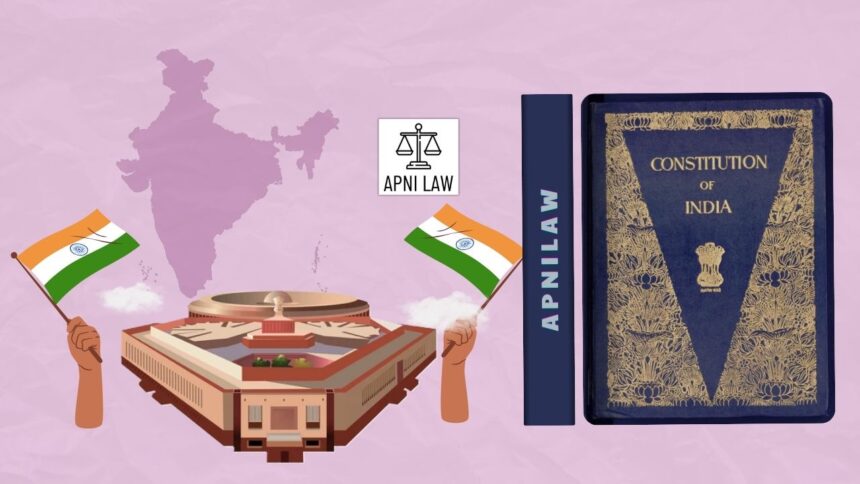Introduction
When the framers of the Indian Constitution debated the role of religion in public life, one of their biggest concerns was education. Schools and colleges shape young minds, and in a diverse country like India, any attempt to impose religious instruction could threaten unity. To address this, Article 28 was introduced. It clearly sets the boundary between education funded by the State and religious teachings.
Article 28 may not be as widely discussed as Articles 25 or 26, but it plays an equally important role in safeguarding India’s secular character. It ensures that no student is forced to participate in religious practices against their will while allowing space for private institutions with religious backgrounds to function. This Article has shaped how religion and education coexist in India and continues to remain highly relevant in present times.
Meaning and Explanation of Article 28
Article 28 of the Constitution lays down three important rules. First, it prohibits religious instruction in any educational institution wholly maintained by State funds. This ensures that public money is not used for the promotion of any faith. Second, it allows religious teaching in institutions that are managed by the State but established under an endowment or trust that requires such instruction. This exception was made to protect historic institutions that were founded with specific religious purposes. Third, it guarantees that no person attending a State-recognized or aided institution shall be forced to participate in religious instruction or worship without their consent. For minors, this consent must come from their guardians.
The provision thus carefully balances the secular responsibility of the State with the cultural and religious autonomy of private trusts and organizations. It makes participation voluntary and prevents coercion, which is a core principle of religious freedom.
Relevance and Applicability
The true strength of Article 28 lies in its relevance in a pluralistic society. India is home to almost every major religion in the world, and millions of children attend government schools. If the State allowed religious instruction in these institutions, it would risk alienating students from minority communities. Article 28 ensures that schools funded by the State remain neutral spaces where students of all faiths feel included.
At the same time, it does not completely shut the door on religious education. It respects the rights of trusts and communities that have historically run schools with a religious character. The condition of voluntary participation ensures that students and parents retain control over whether to opt into such classes.
Even today, when debates about prayers, religious symbols, and moral education often surface, Article 28 continues to serve as a constitutional safeguard. It draws the line between education that unites and indoctrination that divides.
Case Law and Judicial Interpretation
Courts in India have played a major role in interpreting Article 28. One of the most important cases is Aruna Roy v. Union of India (2002), where the Supreme Court held that there is a clear difference between religious instruction and education about religion. The Court ruled that while Article 28 prohibits religious indoctrination in State-funded schools, teaching about religions from a cultural, historical, or ethical perspective is allowed. This judgment made it clear that secularism does not mean ignoring religion altogether but understanding it in an academic, non-proselytizing way.
Another relevant case is Bijoe Emmanuel v. State of Kerala (1986), popularly known as the National Anthem case. In this matter, students belonging to the Jehovah’s Witness faith refused to sing the national anthem because of their religious beliefs but stood respectfully during it. The Supreme Court upheld their right, reinforcing that freedom of conscience in educational settings must be respected. Although not directly under Article 28, this case reflects the same spirit of non-coercion that Article 28 embodies.
These interpretations show that courts have consistently read Article 28 in a way that protects both secularism and individual liberty.
Historical Background and Constituent Assembly Debates
The Constituent Assembly debates around Article 28 reveal the framers’ careful approach to religion and education. Leaders like Pandit Nehru and Dr. B.R. Ambedkar were clear that State money should not fund religious instruction. They argued that the State’s neutrality was necessary to protect unity in a multi-religious society. However, several members of the Assembly insisted that religious trusts and institutions established with specific purposes should not lose their identity.
The compromise reached was Article 28 in its final form. It bans religious instruction in State-funded schools but respects the rights of institutions created by endowments or trusts. Most importantly, it makes participation voluntary. This compromise reflected the spirit of India’s secularism, neutrality by the State, respect for diversity, and protection of individual choice.
Practical Impact of Article 28
Article 28 has a very real impact on daily life in schools and colleges across India. In government schools, prayers are often limited to moral or patriotic themes rather than religious teachings. Students cannot be forced to participate in rituals or ceremonies of a particular faith. Even in schools run by religious organizations, such as missionary schools or madrassas that receive some government aid, parents have the final say in whether their children will attend religious instruction.
This ensures that students from different faiths can study together without feeling pressured or excluded. It protects the secular character of public education while still leaving room for communities that want to preserve their cultural heritage through private institutions.
Article 28 in the Modern Context
The modern relevance of Article 28 cannot be overstated. In times when questions about the role of religion in public life are constantly debated, this Article provides clarity. It protects the classroom from becoming a ground for religious influence while leaving space for voluntary practice. In an era where education is central to nation-building, Article 28 ensures inclusivity, neutrality, and respect for diversity.
Its balance reflects the larger Indian model of secularism. The State does not oppose religion but keeps itself neutral. It neither promotes nor interferes, unless coercion is involved. This principle is vital for a democracy like India, where unity depends on respecting diversity.
FAQ Section
Does Article 28 completely ban religion in schools?
No, Article 28 bans religious instruction only in State-funded institutions. It allows religious teaching in private or trust-run institutions, provided students attend voluntarily.
Can students be forced to join prayers in aided schools?
No, Article 28 makes it clear that no student can be compelled to participate in religious instruction or worship without consent. For minors, the guardian’s consent is necessary.
How is Article 28 linked to secularism in India?
Article 28 embodies Indian secularism by ensuring State neutrality in education. It allows space for private religious education but protects individuals from coercion, thereby balancing unity and diversity.
Conclusion
Article 28 of the Indian Constitution may seem like a narrow provision, but its impact is profound. It ensures that State-funded education remains secular, protects the rights of private institutions with religious backgrounds, and, most importantly, guarantees that no student is forced into religious practices. Through this balance, it captures the essence of Indian secularism, neutrality of the State, respect for diversity, and protection of individual choice.
By safeguarding young minds from religious coercion while allowing cultural freedom, Article 28 continues to shape the spirit of Indian democracy. It ensures that classrooms remain spaces of learning, unity, and equality, reflecting the larger vision of the Constitution to build a just and inclusive society.
For any specific query call at +91 – 8569843472








